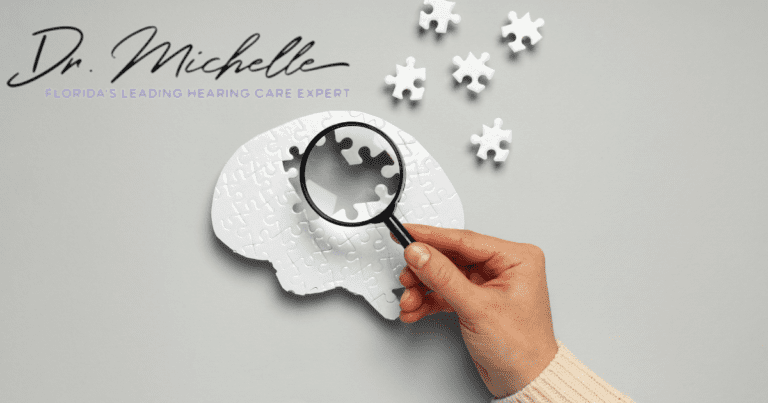As we age, it’s not uncommon for our hearing to decline. But did you know that hearing loss is more than just a frustrating inconvenience? Recent research has shown a significant link between hearing loss and cognitive decline. Understanding this connection is crucial for our overall health and well-being, especially as we age. In this blog post, we will explore the fascinating relationship between hearing loss and cognitive decline and discuss strategies for maintaining cognitive health.
The Link Between Hearing Loss and Cognitive Decline
Numerous studies have established a clear connection between hearing loss and cognitive decline. One study published in the Journal of the American Medical Association found that individuals with untreated hearing loss had a higher risk of developing dementia compared to those without hearing loss. Other research has shown that even mild hearing loss can lead to cognitive impairments.
So, what’s the mechanism behind this connection? One theory is cognitive load theory, which suggests that the brain uses more resources to process and decode sounds when hearing is impaired. This increased cognitive effort leaves fewer resources for other cognitive tasks, leading to a decline in these areas over time. Additionally, social isolation caused by hearing loss can also contribute to cognitive decline.
Impact of Hearing Loss on Cognitive Function
Hearing loss can affect various cognitive functions, including memory, attention, and processing speed. When individuals struggle to hear and communicate, they often experience declines in their working memory, making it more difficult to remember and retain information. Attention span can also suffer as individuals with hearing loss struggle to stay focused on conversations or tasks that require auditory input. Finally, processing speed may be affected as the brain must work harder to make sense of sounds, leading to slower cognitive processing.
Consider this scenario: John, a retiree, has untreated hearing loss. He attends a family gathering and finds it challenging to follow conversations. As a result, he becomes disengaged and does not actively participate. Over time, this lack of cognitive stimulation and social interaction can lead to cognitive decline, affecting his overall quality of life.
Shared Risk Factors for Hearing Loss and Cognitive Decline
Interestingly, several risk factors contribute to both hearing loss and cognitive decline. Aging is the most significant risk factor for both conditions, as our hearing and cognitive abilities naturally decline as we grow older. Additionally, certain lifestyle factors, such as smoking, excessive noise exposure, and poor cardiovascular health, can increase the risk of both hearing loss and cognitive decline.
By addressing these shared risk factors, we may be able to mitigate the effects of both hearing loss and cognitive decline. Regular exercise, a heart-healthy diet, and avoiding smoking can improve cardiovascular health, benefiting both our hearing and cognitive function.
Strategies for Maintaining Cognitive Health with Hearing Loss
Early detection and treatment of hearing loss are paramount in protecting cognitive health. If you suspect hearing loss, don’t delay seeking professional help. Hearing aids are one of the most effective tools for managing hearing loss and preserving cognitive function. These devices amplify sounds, making it easier for the brain to process auditory information and reducing cognitive load.
In addition to hearing aids, there are other strategies to maintain cognitive health with hearing loss. Staying socially engaged and participating in activities that stimulate the brain, such as puzzles, reading, and learning new skills, can help keep your cognitive abilities sharp. Regular communication exercises, such as listening to audiobooks or engaging in conversations, can also provide mental stimulation.
The link between hearing loss and cognitive decline is a fascinating and important topic that highlights the interconnectedness of our sensory and cognitive systems. By understanding this connection, we can take proactive steps to protect our cognitive health. Addressing hearing loss through early intervention, using hearing aids if necessary, and adopting a healthy lifestyle can make a significant difference. If you suspect hearing loss or cognitive decline, we encourage you to make an appointment right away. Your overall well-being depends on it.



